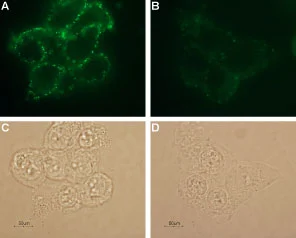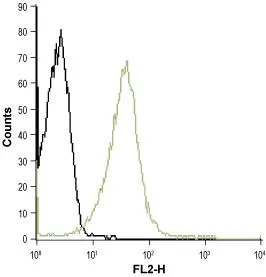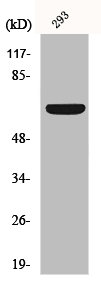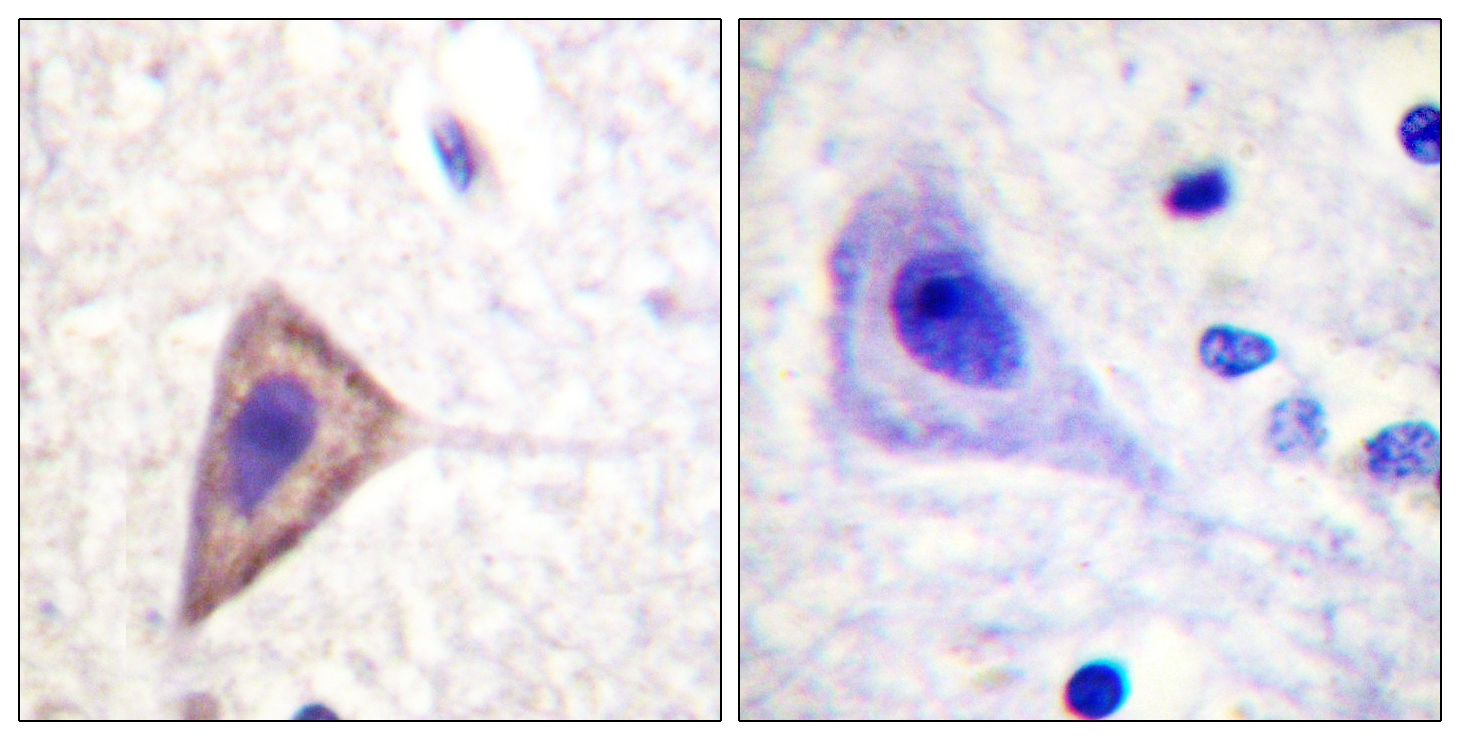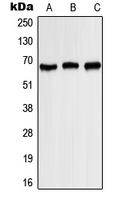
WB analysis of Jurkat cell lysates using GTX16679 Kv1.3 antibody preincubated with or without immunogen peptide. Dilution : 1:200
Kv1.3 antibody
GTX16679
ApplicationsFlow Cytometry, ImmunoFluorescence, ImmunoPrecipitation, Western Blot, ImmunoCytoChemistry, ImmunoHistoChemistry, Other Application
Product group Antibodies
ReactivityHuman, Mouse, Rat
TargetKCNA3
Overview
- SupplierGeneTex
- Product NameKv1.3 antibody
- Delivery Days Customer7
- ApplicationsFlow Cytometry, ImmunoFluorescence, ImmunoPrecipitation, Western Blot, ImmunoCytoChemistry, ImmunoHistoChemistry, Other Application
- CertificationResearch Use Only
- ClonalityPolyclonal
- Concentration0.8 mg/ml
- ConjugateUnconjugated
- Gene ID3738
- Target nameKCNA3
- Target descriptionpotassium voltage-gated channel subfamily A member 3
- Target synonymsHGK5, HLK3, HPCN3, HUKIII, KV1.3, MK3, PCN3, potassium voltage-gated channel subfamily A member 3, RP11-284N8.3, potassium channel 3, potassium channel, voltage gated shaker related subfamily A, member 3, potassium voltage-gated channel, shaker-related subfamily, member 3, type n potassium channel, voltage-gated K(+) channel HuKIII, voltage-gated potassium channel protein Kv1.3, voltage-gated potassium channel subunit Kv1.3
- HostRabbit
- IsotypeIgG
- Protein IDP22001
- Protein NamePotassium voltage-gated channel subfamily A member 3
- Scientific DescriptionPotassium channels represent the most complex class of voltage-gated ion channels from both functional and structural standpoints. Their diverse functions include regulating neurotransmitter release, heart rate, insulin secretion, neuronal excitability, epithelial electrolyte transport, smooth muscle contraction, and cell volume. Four sequence-related potassium channel genes - shaker, shaw, shab, and shal - have been identified in Drosophila, and each has been shown to have human homolog(s). This gene encodes a member of the potassium channel, voltage-gated, shaker-related subfamily. This member contains six membrane-spanning domains with a shaker-type repeat in the fourth segment. It belongs to the delayed rectifier class, members of which allow nerve cells to efficiently repolarize following an action potential. It plays an essential role in T-cell proliferation and activation. This gene appears to be intronless and it is clustered together with KCNA2 and KCNA10 genes on chromosome 1. [provided by RefSeq, Jul 2008]
- ReactivityHuman, Mouse, Rat
- Storage Instruction-20°C or -80°C,2°C to 8°C
- UNSPSC41116161

